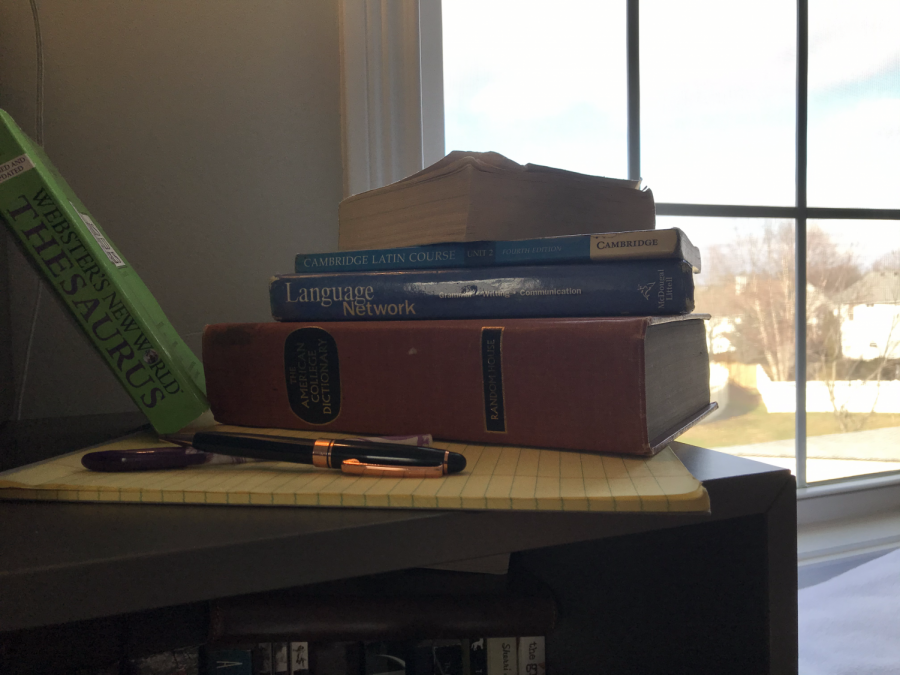RedEye‘s study techniques
February 17, 2020
In the upcoming few weeks of February, there are a lot of standardized tests. Many of them will be very important, including the ACT, SAT and others. It can be a little overwhelming to study and prepare for all of the standardized tests. Here, we’ve got some good tips and techniques to help to study.
Step 1: Create lists and goals
Create a list of what tests, quizzes or any kind of assessments you’re going to have and put the day you take them on in the calendar so that you can prioritize what you should study first. Also, if possible, try to look for the volume of the tests, so that you can make sure you know how much of an impact each test will cause.
Create a set of goals of what you want to accomplish, whether it be a grade you want out of the test, a product of what the test score may cause in your school career or anything else you want to accomplish from the test. This will help you keep you eye on what you’re striving for to help keep you focused in your studying.
Step 2: Start finding your Study Habits
To put it simply, a study habit is basically a routine you create when studying. For example, you may find that you study really well by going to the library to study, or maybe eating certain foods or listening to music. We’ll look into a few activities that make really good study habits.
Music is one of the best ways to help keep you focused on studying, though it may only work with certain kinds of music. Instrumental music is recommended, for the reason that it’s hard to get distracted with instrumental music since we tend to focus more on the vocal melodies in modern music.
Now we aren’t saying that you have to go crazy with Mozart and Beethoven, or Clara Schumann and Amy Beach. In fact, there are a lot more instrumental songs out there that you can listen to. If you’re a music geek, look up the genre of music you like and add “ambiance” or “instrumental” to that search, and you’ll find many choices. If you’re a movie or video game fanatic, look up the movie or game’s soundtrack and listen to it. Video games are famous for the ambiance and music.
Definitely explore the instrumental side of music, or if you like to listen to your own music, go right on ahead, whatever works for you.
If you’re a food person, there are lots of foods that help with anxiety if you get very nervous about studying for a test. Here’s a list of foods that scientists and nutritionists have found to relieve anxiety.
- Yogurts and Fermented Foods – It has been proven that fermented food helps reduce anxiety.
- Asparagus – Has mood-boosting nutrients.
- Blueberries – Packed full of Vitamin C, a vitamin that we crave when we’re anxious.
- Avocado – Has Vitamin B6, which helps connect neurotransmitters like serotonin, which helps influence mood.
- Turkey – Helps with neurotransmitters and serotonin, and regulates mood and sleep.
- Almonds – Full of magnesium, and studies show that magnesium has helped relieve stress before.
- Salmon – Has omega-3 fatty acids, which showed in an Ohio University Study that these acids are effective in stress-relieving.
Keep in mind these foods are only recommended and are not to help you study, but to relieve the stress and anxiety of studying. We are not asking that you should go on a diet or routine, but only as a recommendation. Foods and facts found in an article by Psycom.
Step three: Find a good place to study
If you’re wondering where you should do this studying, it all really depends on what kind of person you are when it comes to studying. If you like it quiet and secluded, your room is perfect or maybe an office of some sort. If you like a more natural setting, try your local park, backyard, maybe even a tree house if you just so happen to own one.
We’ll list a few places to study for all kinds of personalities.
- Library – The best place to study, surrounded by books and knowledge and a very quiet place since the policy is “quiet please”.
- At Home – If your home is quiet during the day, then your home will suit you just fine!
- After School – Maybe if you’re in a sport or a club and have to stay after school, school is a perfect place to study, especially if it has a library or a quiet classroom.
- Outside – Parks are a perfect place to study. Maybe you own a beautiful backyard or live near a park. That’s perfect!
Step 4: Taking the Test
It’s here. That one test you studied so hard for is here. But don’t panic, here are a few test-taking tips to help you survive it all the way through. You will be just fine.
First: Breath. Relax a little, un-tense your muscles, and just remain calm. The test may be intimidating, but don’t let it scare you. Remember all the studying you’ve done, and clear your mind. Try to focus on what the question’s asking, and then take what you know and apply it in finding the answer.
Also try and pace yourself. Take it slow. It does no one any good to rush through a test. Just take your time and try to understand what it is you’re trying to solve or respond to. If the test is timed, don’t let yourself get overwhelmed by getting everything done. Just focus on answering all the questions you can and getting all of the points possible.
If you’re someone whose hands and fingers cramp up while doing extended responses, stretch your fingers and your hands. It will help in the long run.
You did it!
The test is done. You’ve finally finished your test! Hopefully, this guide gave you some tips and helpful strategies. We wish you good luck with all the upcoming tests!









